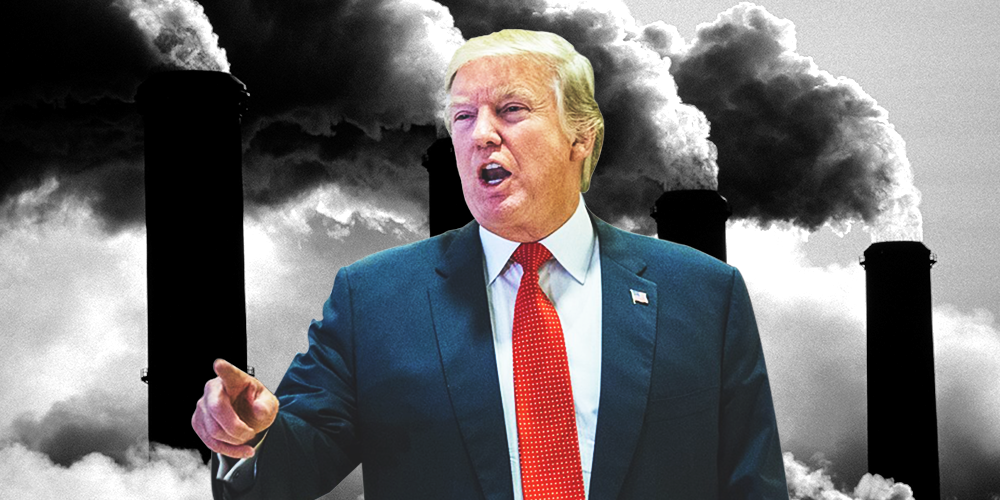environmental politics
A Bipartisan Concern: National Security and Climate Change
Even within the Trump Administration and the House GOP, climate change is seen as a threat.
In written testimony to Congress about threat to national security, the Trump Administration’s Director of National Intelligence (DNI) discussed climate change. His discussion didn’t equivocate about the reality or dangers of climate change. Rather, he took the science, and the threat, seriously: “The past 115 years have been the warmest period in the history of …
Continue reading “A Bipartisan Concern: National Security and Climate Change”
CONTINUE READINGThe Environmental Generation Gap
Millennials may hold the key to future climate action.
You can predict a lot about someone’s attitudes on climate issues if you know their age. Millennials are much more likely to understand climate change and support carbon reductions than their elders. The good news is that it will get easier to find political support for climate action as the population shifts toward millennials and …
Continue reading “The Environmental Generation Gap”
CONTINUE READING1½ Years of Trump
Where are we, after continual environmental assaults by Trump, Pruitt, and Zinke?
Trump has been in office for a year and a half. Where do thing stand? How permanent will the damage be to environmental protection? Answer: bad, but not nearly as it might have been. The degree of resistance especially impressive when you consider the circumstances just how much of American government is controlled by Republicans. …
Continue reading “1½ Years of Trump”
CONTINUE READINGSenate Update
Will environmentalists have any leverage in the Senate? Here are the races to watch.
Where are we in the battle to control the Senate? I’ve posted previously about eight key races. Here are the current predictions from two leading forecasters. In every case where both candidates for these Senate seats have LCV scores, the Democrat’s score is at least 40% better than the Republican’s, and often the disparity is …
Continue reading “Senate Update”
CONTINUE READINGEnvironmental Strategies for the Post-Kennedy Era
How do we make environmental progress despite an increasingly unsympathetic court?
Ann Carlson wrote an excellent post about how Kennedy’s departure might impact some key environmental issues. His retirement means that the Supreme Court will move even further to the right and stay there at least until one of the conservatives departs (maybe Thomas, the oldest). The new pick is likely to be another Gorsuch, which …
Continue reading “Environmental Strategies for the Post-Kennedy Era”
CONTINUE READINGSenate Races and the Environment
Eight races will determine the balance of power in the Senate.
There’s a lot riding on the 2018 elections. The midterms will decide whether the GOP has a large enough majority to pass legislation weakening environmental protection, whether either house of Congress is willing to investigate misconduct by Pruitt and others, and who Trump can appoint to agencies and the judiciary. I’ll post more detailed information …
Continue reading “Senate Races and the Environment”
CONTINUE READINGThe 2018 Elections: Governors
These nine races will shape the future of U.S. climate policy.
In the Trump era, states have become crucial to any hope of moving climate policy forward. That makes gubernatorial elections more crucial than ever. With that in mind, I’ve taken a look at crucial governors’ races to check out the potential effect on climate policy. My selection of states is based on lists of key …
Continue reading “The 2018 Elections: Governors”
CONTINUE READING2018 Elections: An Overview
The mid-terms will have significant implications on environmental policy.
We would all like to think of law as insulated from day-to-day politics. That separation is difficult to maintain today, given the extent of polarization on environmental issues. It is worth looking ahead a few months, then, to see what the future may hold. With that in mind, I’ve collected a bit of information about …
Continue reading “2018 Elections: An Overview”
CONTINUE READINGRed-State Utilities Go Green
Utilities are moving away from coal & toward renewables, even in GOP states.
Even in Republican states, there has been a regulatory movement to expand the use of renewables. (see this report for more.) Perhaps even more surprisingly, some utilities and generating companies that now use a lot of coal are voluntarily turning to renewables. Here are some recent examples: Ohio. In February, AEP explained that “Our customers …
Continue reading “Red-State Utilities Go Green”
CONTINUE READINGNov. 2018: Senate Races
The odds are that the Republicans will continue to control the Senate in 2018. The electoral map is very unfavorable to the Democrats, with many vulnerable Democrats up for reelection and only two such Republicans. But even if the GOP keeps control, their victory margin matters. It will determine how much maneuvering room that McConnell …
Continue reading “Nov. 2018: Senate Races”
CONTINUE READING












